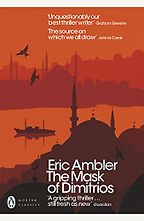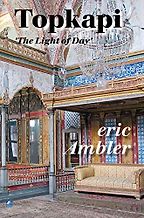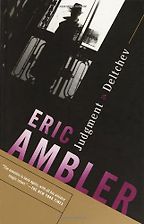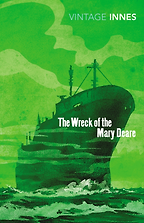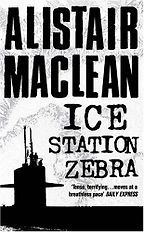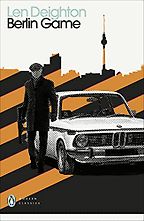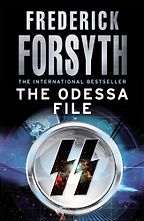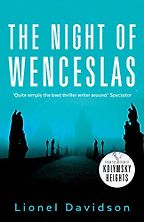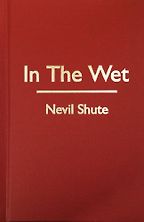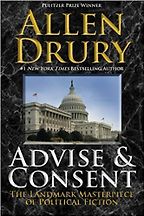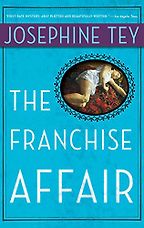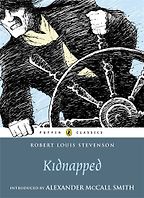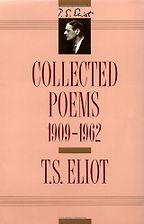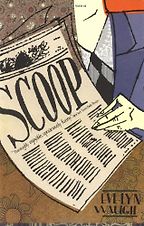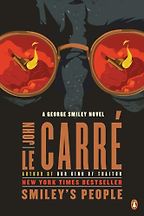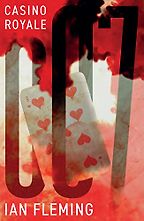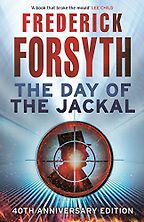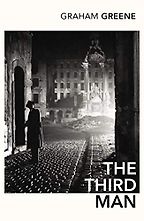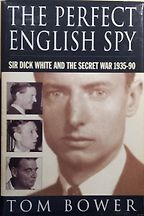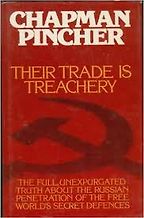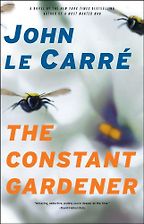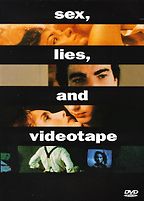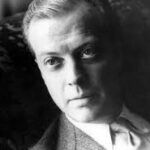
Books by Eric Ambler
Eric Ambler (1909-1998) was a British writer of spy novels.
“He’s the thriller writer’s writer in many ways. People like le Carré and Graham Greene heaped a lot of praise on Ambler…The hero of The Mask of Dimitrios is a writer who is just interested in following up stories. He hears about a man called Dimitrios, a notorious criminal figure, who has apparently died. Then he decides—slightly implausibly, it has to be said—that he’ll turn detective and find out what really happened to Dimitrios, and ends up in a chase across Europe.” Read more...
Five Classic European Spy Novels
Patrick Worrall, Thriller and Crime Writer
“This really is the funniest, best-written book ever. It’s about a wee silly man called Arthur, a sneak thief, who gets caught up in a plan to rob the Topkapi Palace in Istanbul. Peter Ustinov was in the film of the same name and he did it brilliantly. The book is written in such a way that you end up rooting for this awful little man. He’s a great craftsman, Eric Ambler: I think he’s better than John le Carré.” Read more...
Mysteries and Other Favourite Books
M C Beaton, Thriller and Crime Writer
“It’s about a show trial and it’s also a moment in the life of Eric Ambler, who I think is one of the most intelligent and illuminating thriller writers of the 20th century, when he goes through that moment that a lot of left-wing people go through when he realises that what he used to believe in isn’t sound any more, and he does it with his usual great intelligence and his fine plotting and understanding of how people actually behave and work. There are also some wonderful descriptions of what it was like to be a journalist trying to operate in a Communist capital and some marvellous moments of seediness which Graham Greene couldn’t have outdone. I can’t recommend it highly enough to anybody who’s interested in both in thrillers and in politics.” Read more...
The Best Anti-Communist Thrillers
Peter Hitchens, Journalist
“A lot of people really like Eric Ambler and he’s a wonderful prose stylist – he’s a serious writer. This is a claustrophobic story set on a ship full of German spies and the hero is an English spy. It’s set in World War II and what’s amazing is that it was written in 1940 and he didn’t know what the outcome of the war would be. We know Germany lost and everything was OK, but if you were writing in 1940 you’d think: ‘Cripes, these people look very scary and good and we don’t really look very good at all.’ It’s like all those Cold War thrillers that look very different now that we’ve won, but if you go back and look they were very frightening. This book is like George Orwell writing a thriller – it was the start, really, of the thriller as a literary genre.” Read more...
The Best Classic British Thrillers
Matt Lynn, Novelist
Interviews where books by Eric Ambler were recommended
The Best Classic British Thrillers, recommended by Matt Lynn
Author Matt Lynn says that good thrillers need a sense of foreboding and tension – and a brilliant central character. “The thriller has always been a very political genre, a kind of snapshot in time”
The Best Anti-Communist Thrillers, recommended by Peter Hitchens
Right-wing journalist and political commentator Peter Hitchens says the Left has been liberated by the fall of the Berlin Wall and that speech is probably freer in modern Russia than it is in Britain. He recommends some great anti-Communist thrillers.
Mysteries and Other Favourite Books, recommended by M C Beaton
North Scotland is wonderful countryside, a marvellous setting for a murder. The wind just screams from horizon to horizon – it’s like living in a speeded-up nature film. You open up the kitchen door and catch a passing sheep…
Five Classic European Spy Novels, recommended by Patrick Worrall
From a noir novel by Eric Ambler set in 1930s Europe to some of the great spy thrillers of the post-World War II era, British novelist Patrick Worrall, author of The Exile, talks us through five of his favourite espionage novels.
The best books on Espionage, recommended by Charles Cumming
Leading British spy writer Charles Cumming found his vocation at 25 after he was approached by MI6. He says that experience, brief but interesting, was crying out to be dramatised
